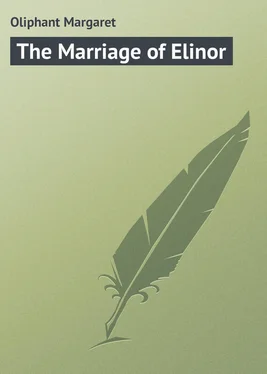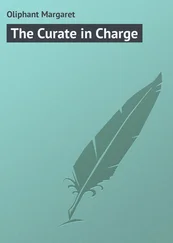Margaret Oliphant - The Marriage of Elinor
Здесь есть возможность читать онлайн «Margaret Oliphant - The Marriage of Elinor» — ознакомительный отрывок электронной книги совершенно бесплатно, а после прочтения отрывка купить полную версию. В некоторых случаях можно слушать аудио, скачать через торрент в формате fb2 и присутствует краткое содержание. Жанр: foreign_prose, на английском языке. Описание произведения, (предисловие) а так же отзывы посетителей доступны на портале библиотеки ЛибКат.
- Название:The Marriage of Elinor
- Автор:
- Жанр:
- Год:неизвестен
- ISBN:нет данных
- Рейтинг книги:3 / 5. Голосов: 1
-
Избранное:Добавить в избранное
- Отзывы:
-
Ваша оценка:
- 60
- 1
- 2
- 3
- 4
- 5
The Marriage of Elinor: краткое содержание, описание и аннотация
Предлагаем к чтению аннотацию, описание, краткое содержание или предисловие (зависит от того, что написал сам автор книги «The Marriage of Elinor»). Если вы не нашли необходимую информацию о книге — напишите в комментариях, мы постараемся отыскать её.
The Marriage of Elinor — читать онлайн ознакомительный отрывок
Ниже представлен текст книги, разбитый по страницам. Система сохранения места последней прочитанной страницы, позволяет с удобством читать онлайн бесплатно книгу «The Marriage of Elinor», без необходимости каждый раз заново искать на чём Вы остановились. Поставьте закладку, и сможете в любой момент перейти на страницу, на которой закончили чтение.
Интервал:
Закладка:
"You may be sure, Elinor, that I did not put it on that ground."
"No, perhaps: but on ground not much more respectful to me – perhaps that I have been fascinated by a handsome man, which is not considered derogatory. Oh, John, a girl does not give herself away on an argument like that. I may be hasty and self-willed and impatient, as you say; but when you – love!" Her face flushed like a rose, so that even in the grey of the evening it shone out like one of the clouds full of sunset that still lingered on the sky. A few quick tears followed, the natural consequence of her emotion. And then she turned to him with the ineffable condescension of one farther advanced in life stooping sweetly to his ignorance. "You have not yet come to the moment in your experience when you can understand that, dear John."
Oh, the insight and the ignorance, the knowledge and the absence of all perception! He, too, laughed out, as she had done, with a sense of the intolerable ridicule and folly and mistake. "Perhaps that's how it is," he said.
Elinor looked at him gravely, in an elder-sisterly, profoundly-investigating way, and then she took his arm quietly and turned towards home. "I shall forget what you have said, and you will forget that you ever said it; and now we will go home, John, and be just the same dear friends as before."
"Will you promise me," he said, "that whatever happens, without pride, or recollection of what I've been so foolish as to say, in any need or emergency, or whenever you want anything, or if you should be in trouble – trouble comes to everybody in this life – you will remember what you have said just now, and send for your cousin John?"
Her whole face beamed out in one smile, she clasped her other hand round his arm; "I should have done it without being asked, without ever doubting for a moment, because it was the most natural thing in the world. Whom should I turn to else if not to my dear old – But call me Nelly, John."
"Dear little Nelly!" he said with faltering voice, "then that is a bargain."
She held up her cheek to him, and he kissed it solemnly in the shadow of the little young oak that fluttered its leaves wistfully in the breeze that was getting up – and then very soberly, saying little, they walked back to the cottage. He was going abroad for his vacation, not saying to himself even that he preferred not to be present at the wedding, but resigning himself to the necessity, for it was not to be till the middle of September, and it would be breaking up his holiday had he to come back at that time. So this little interview was a leave-taking as well as a solemn engagement for all the risks and dangers of life. The pain in it, after that very sharp moment in the copse, was softened down into a sadness not unsweet, as they came silently together from out of the shadow into the quiet hemisphere of sky and space, which was over the little centre of the cottage with its human glimmer of fire and lights. The sky was unusually clear, and among those soft, rose-tinted clouds of the sunset, which were no clouds at all, had risen a young crescent of a moon, just about to disappear, too, in the short course of one of her earliest nights. They lingered for a moment before they went indoors. The depth of the combe was filled with the growing darkness, but the ridges above were still light and softly edged with the silver of the moon, and the distant road, like a long, white line, came conspicuously into sight, winding for a little way along the hill-top unsheltered, before it plunged into the shadow of the trees – the road that led into the world, by which they should both depart presently to stray into such different ways.
CHAPTER VI
The drawing-room after dinner always looked cheerful. Perhaps the fact that it was a sort of little oasis in the desert, and that the light from those windows shone into three counties, made the interior more cosy and bright. (There are houses now upon every knoll, and the wind cannot blow on Windyhill for the quantity of obstructions it meets with.) There was the usual log burning on the hearth, and the party in general kept away from it, for the night was warm. Only Mr. Sharp, the London lawyer, was equal to bearing the heat. He stood with his back to it, and his long legs showing against the glow behind, a sharp-nosed, long man in black, who had immediately suggested Mephistopheles to Elinor, even though he was on the Compton side. He had taken his coffee after dinner, and now he stood over the fire slowly sipping a cup of tea. There was a look of acquisitiveness about him which suggested an inclination to appropriate anything from the unnecessary heat of the fire to the equally unnecessary tea. But Mr. Sharp had been on the winning side. He had demonstrated the superior sense of making the money – which was not large enough sum to settle – of real use to the young pair by an investment which would increase Mr. Compton's importance in his company, besides producing very good dividends – much better dividends than would be possible if it were treated in the old-fashioned way by trustees. This was how the bride wished it, which was the most telling of arguments: and surely, to insure good interest and an increase of capital to her, through her husband's hands, was better than to secure some beggarly hundred and fifty pounds a year for her portion, though without any risks at all.
Mr. Sharp had also taken great pains to point out that there were only three brothers – one an invalid and the other two soldiers – between Mr. Phil and the title, and that even to be the Honourable Mrs. Compton was something for a young lady, who was, if he might venture to say so, nobody – not to say a word against her charms. Lord St. Serf was hourly getting an old man, and the chances that his client might step over a hecatomb of dead relations to the height of fortune was a thing quite worth taking into account. It was a much better argument, however, to return to the analogy of other poor young people, where the bride's little fortune would be put into the husband's business, and thus their joint advantage considered. Mr. Sharp, at the same time, did not hesitate to express politely his opinion that to call him down to the country for a discussion which could have been carried on much better in one or other of their respective offices was a most uncalled for proceeding, especially as even now the other side was wavering, and would not consent to conclude matters, and make the signatures that were necessary at once. Mr. Lynch, it must be allowed, was of the same opinion too.
"Your country is a little bleak at night," said Mr. Sharp, partially mollified by a good dinner, but beginning to remember unpleasantly the cold drive in a rattletrap of a little rustic pony carriage over the hills and hollows. "Do you really remain here all the year? How wonderful! Not even a glimpse of the world in summer, or a little escape from the chills in winter? How brave of you! What patience and powers of endurance must be cultivated in that way!"
"One would think Windyhill was Siberia at least," said Mrs. Dennistoun, laughing; "we do not give ourselves credit for all these fine qualities."
"Some people are heroes – or heroines – without knowing it," said Mr. Sharp, with a bow.
"And yet," said the mother, with a little indignation, "there was some talk of Mr. Compton doing me the honour to share my hermitage for a part of the year."
"Mr. Compton! my dear lady! Mr. Compton would die of it in a week," said Mr. Sharp.
"I am quite well aware of it," said Mrs. Dennistoun; and she added, after a pause, "so should I."
"What a change it will be for your daughter," said Mr. Sharp. "She will see everything that is worth seeing. More in a month than she would see here in a dozen years. Trust Mr. Compton for knowing all that's worth going after. They have all an instinct for life that is quite remarkable. There's Lady Mariamne, who has society at her feet, and the old lord is a most remarkable old gentleman. Your daughter, Mrs. Dennistoun, is a very fortunate young lady. She has my best congratulations, I am sure."
Читать дальшеИнтервал:
Закладка:
Похожие книги на «The Marriage of Elinor»
Представляем Вашему вниманию похожие книги на «The Marriage of Elinor» списком для выбора. Мы отобрали схожую по названию и смыслу литературу в надежде предоставить читателям больше вариантов отыскать новые, интересные, ещё непрочитанные произведения.
Обсуждение, отзывы о книге «The Marriage of Elinor» и просто собственные мнения читателей. Оставьте ваши комментарии, напишите, что Вы думаете о произведении, его смысле или главных героях. Укажите что конкретно понравилось, а что нет, и почему Вы так считаете.












